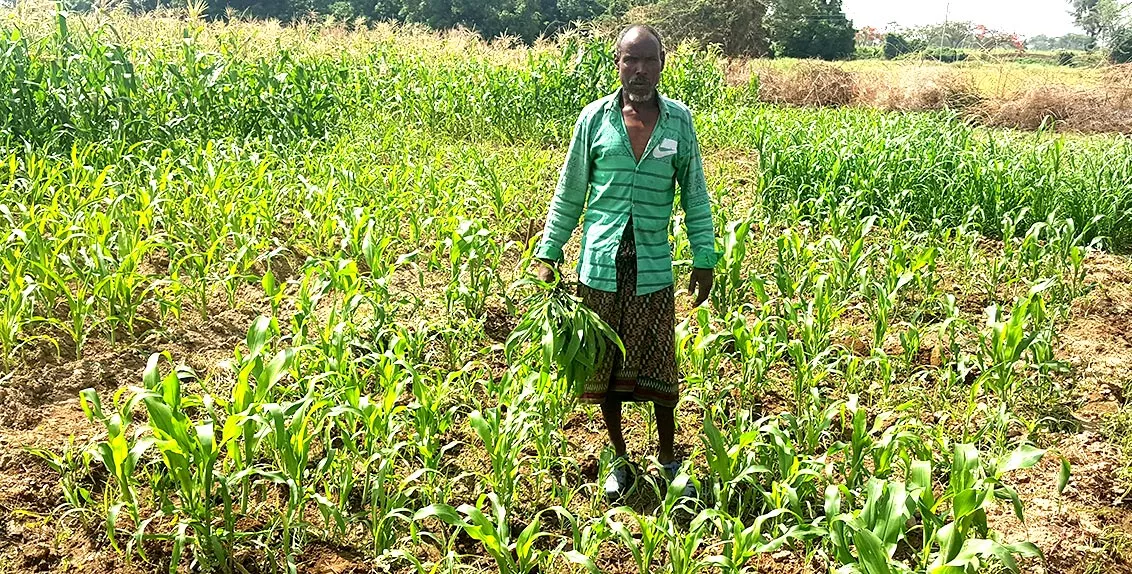Soil salinity takes heavy toll on smallholders in Ethiopia, South Sudan - study
8 April 2020
Soil salinity and poor irrigation are leading to food insecurity and poverty in rural parts of Ethiopia and South Sudan as smallholder farmers are facing reduced yields and incomes, a recently published study shows.
Conducted by the International Center for Biosaline Agriculture (ICBA) in collaboration with the Ministry of Agriculture of Ethiopia, the Ethiopian Agricultural Research Institute (EIAR) and the Directorate of Research and Training (DRT) of South Sudan, the study points out that many smallholder farmers have to contend with soil salinity and poor irrigation and make do with low or zero yields.
As part of the study, more than 500 smallholders, including around 300 from the four regions of Ethiopia and some 200 from the five selected sites in South Sudan, participated in a series of baseline surveys to assess the impacts of soil salinity and inadequate access to proper irrigation.
In Ethiopia, smallholders reported that soil salinity causes a reduction of 50 to 100 percent in agricultural productivity. More than 85 percent of them named the quality of irrigation water as the major cause of salinization. Other factors behind low agricultural productivity include poor land leveling, poor irrigation practices, drainage problems, parent material, and lack of access to irrigation water.
The challenges are similar in South Sudan. Over 90 percent of the smallholders there described the unavailability of irrigation water, lack of access to irrigation equipment and agricultural machinery as the main constraints on crop productivity, especially during the dry season. More than 60 percent of them earn less than 1 USD a day, and the majority lack knowledge about salinity-related issues and irrigation management. They put low yields down to insects and diseases.
As a result, many small-scale farmers lose hope and abandon their farmlands, ending up in the vicious circle of food insecurity and poverty. Alas, this situation affects women and children most.
More and more rural households in these areas are becoming dependent on food aid programs run by national and international organizations. But growing demand is putting a strain on these organizations too.
These problems also force male members of the households to move to cities in search of work, causing social problems.
As one of the farmers from Dubti district in Ethiopia said: “We are losing our livestock due to drought and diseases and our land due to the expansion of state-owned commercial farms and salinity. And we are unable to nourish our family, and we are entirely dependent on food aid for more than six months a year. Our remaining cattle are hundreds of kilometers away from us in search of feed, our land productivity is low, our livelihood is deteriorating, and our vulnerability is increasing. We are tired of talking about our problems without having any solution. Our people are ready to do everything possible and to accept a technology that could mitigate salinity and increase the productivity of our farmland.”
Farmers in South Sudan suggest that the government should help them also by providing agricultural machinery. They also believe that access to small-scale irrigation technologies can help boost their agricultural productivity. They also need quality seed and training.
According to Dr. Asad Sarwar Qureshi, a senior irrigation scientist at ICBA and the lead author of the study: “Today Ethiopia ranks first in Africa in terms of the territory affected by salinization due to human-induced and natural causes. Current estimates suggest that over 11 million hectares of land suffer from salinity and sodicity, out of which 8 million hectares have combined salinity and alkalinity problems, whereas the remaining 3 million hectares have alkalinity problems. The salt-affected lands in South Sudan are located in the White Nile irrigation schemes. These areas have hardly been utilized for agricultural production despite having great potential due to freshwater availability from the Nile.”
But the study also offers some hope. It notes that areas with moderate salinity levels can be restored by improving irrigation and crop management practices. However, in areas where high salinity levels make the cultivation of traditional field crops nearly impossible, biosaline agriculture approaches should be used. These include the cultivation of salt-tolerant fodders and halophytes (salt-loving plants) integrated with livestock management systems. These integrated systems can increase the resilience of crop-livestock farms in both Ethiopia and South Sudan.
The study was conducted under a five-year project called the Rehabilitation and Management of Salt-affected Soils to Improve Agricultural Productivity (RAMSAP), which was completed in 2019. Funded by the International Fund for Agricultural Development (IFAD), the project aimed to increase agricultural productivity, food security and income of smallholder farmers, agro-pastoral and pastoral communities in Ethiopia and South Sudan.











